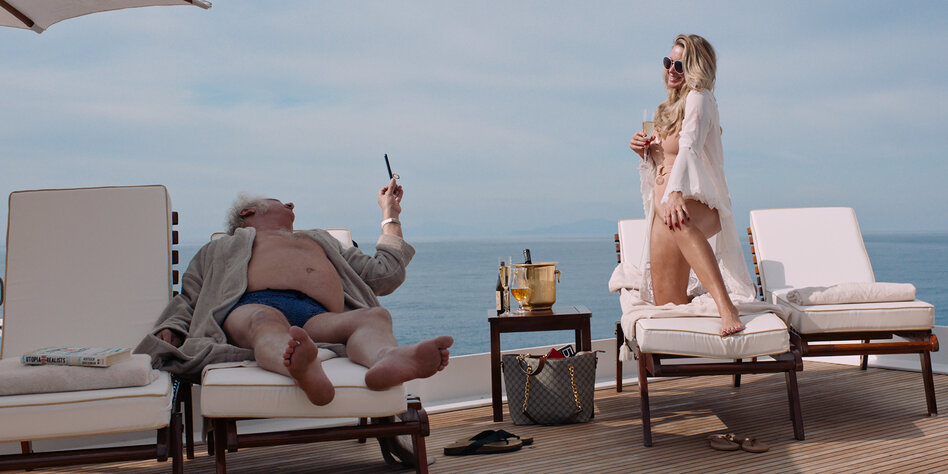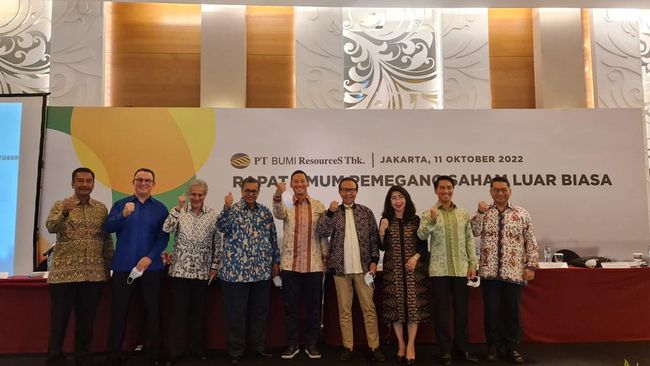In the movie “Triangle of Sadness” the Instagram models meet the oligarchs. Director Ruben Östlund talks about the understanding rich and Karl Marx.
A nice couple of belly oligarchs (Zlatko Buric) and the blonde (Carolina Gynning) Photo: Alamode
The new feature by Swedish director Ruben Östlund leads from the catwalk across a yacht to a lonely island. The focus is on Carl and Yaya, who want to enrich themselves through beauty. They experience true wealth on a luxury yacht, where they play arms dealers, dot-com billionaires and oligarchs. Until they get stuck on an island in the South Sea. Awarded the Palme d’Or in Cannes, this satire on the decadence of the world confronts us with the abyss of the present.
taz: Mr. Östlund, your film “Triangle of Sadness” delves into the world of beauty, wealth and fashion. What attracted you to the fashion industry?
Ruben Östlund: I was interested in the idea that beauty can be a currency to climb into a closed society, even if you have no education or money. If you’re lucky in the genetic lottery, beauty can be a ticket to the top. For a woman, sexuality and beauty are valued in a broader sense than for a man. I find it interesting to discuss this, especially in a post #MeToo world.
Were you looking for a special aspect of #MeToo?
Somehow. My wife is a fashion photographer. She told me that male models get about a third or a quarter of what female models earn. In doing so, they too have to constantly deal with powerful men in the industry who want to sleep with them. It is an interesting mirror #MeToo discussion.
Its main characters, Carl and Yaya, work in the fashion industry and experience these disparities. Later they fight over the bill in a restaurant, where conservative stereotypes and feminist demands collide.
I wanted the film to talk about beauty as money, even if there are many other materialistic points of view. If you look at gender expectations, paying the bill in a restaurant is a perfect example. Despite feminist debates, there are stereotypical traditions that remain unchallenged. How to split the bill.
Isn’t that something very German, to split a bill?
For me it is very autobiographical. When I was in Cannes with The Square, I invited my wife to come with me. At the time we had just fallen in love with her, I wanted to impress her. So I paid for the first night, the second and then the third, but then I felt it was her turn. Luckily she told her of her own free will that she would pay the next bill. When she arrived, nothing happened. After a while I leaned forward a little to take a look and she immediately said, “Thank you honey, that’s so sweet of you.” Instead of reminding her that she wanted to pay, I paid and shivered inside her. Since then, I’ve wanted to circulate the #IGotBilled hashtag for various forms of female manipulation.
This scene can be found almost 1: 1 in the movie.
The conversation between Carl and Yaya is slightly different. But at that moment I was really angry and told her I wanted to live as an equal. You accused me of being stingy. So I took a 50 euro banknote and threw it into the elevator shaft. We laughed about it later.
Ruben Östlund was born in 1974 in Styrsö, Sweden. He studied at the University of Gothenburg. His fourth feature, Force Majeure, won the Jury Prize in the Un Certain Regard section of Cannes in 2014. It won the Palme d’Or at Cannes in 2017 for “The Square”, as well as this year for “Triangle of Sadness “.
You will laugh out loud following your characters. Her journey leads from the world of fashion to a yacht and then to an island in the South Seas.
I wanted to overturn the very strong hierarchies in the world of fashion and on the luxury yacht by leaving my characters stranded on a desert island. Suddenly, beauty and goods are worth nothing, suddenly it’s just about surviving. I enjoy working with turning points like this and looking at my experimental setups from new perspectives. This energizes the storyline and creates opportunities to raise new questions.
Aren’t you exaggerating when the yacht’s crew is only there to grant the most absurd wishes?
No, we have studied it. Crew members of other yachts have told us that it is relatively common for service personnel to go swimming at the request of owners, for example. This story gave me the opportunity to subtly tell about exploitation. But I’ve heard other stories as well. In one case, a guest is said to have asked for a tiger on the yacht, just like that, for fun. And the crew of such a yacht is not there to ask moral questions. They don’t say no, but they drive to the nearest port city with a zoo and ask how much it costs to rent a tiger. What happens on these luxury boats is truly absolutely insane.
Is that why we use the expression “cynicism disguised as optimism”?


